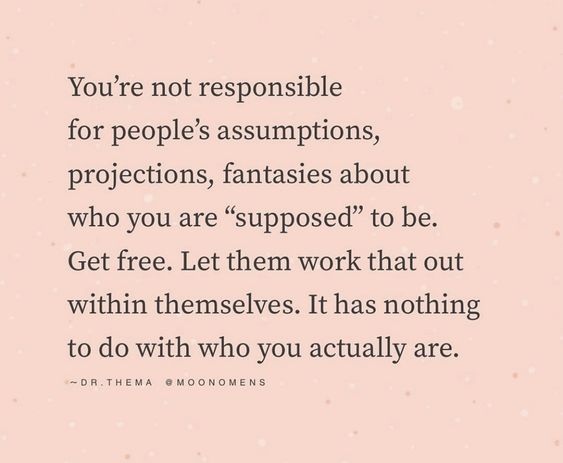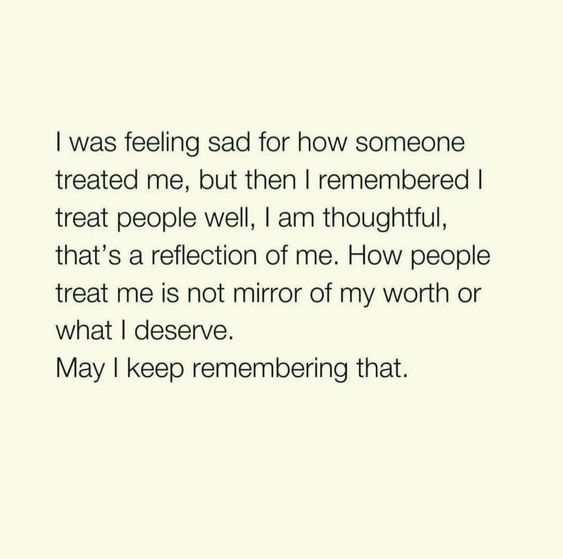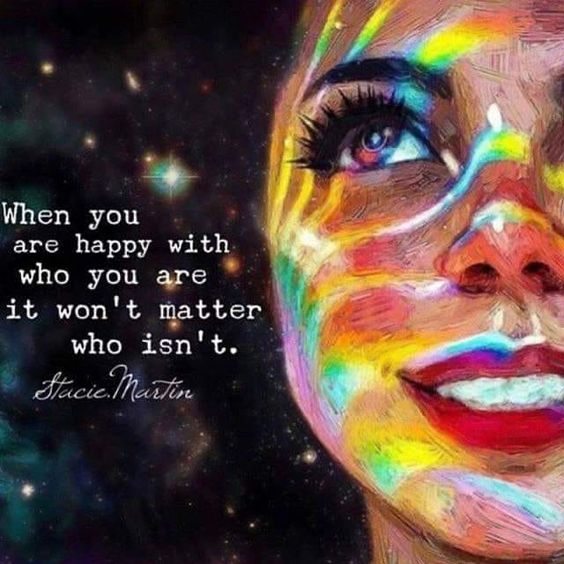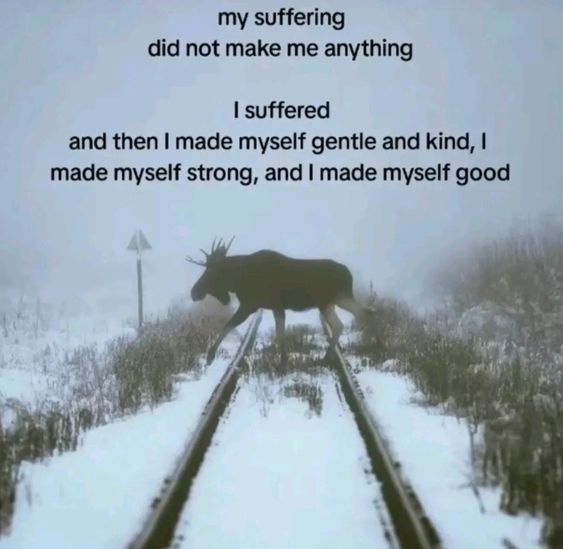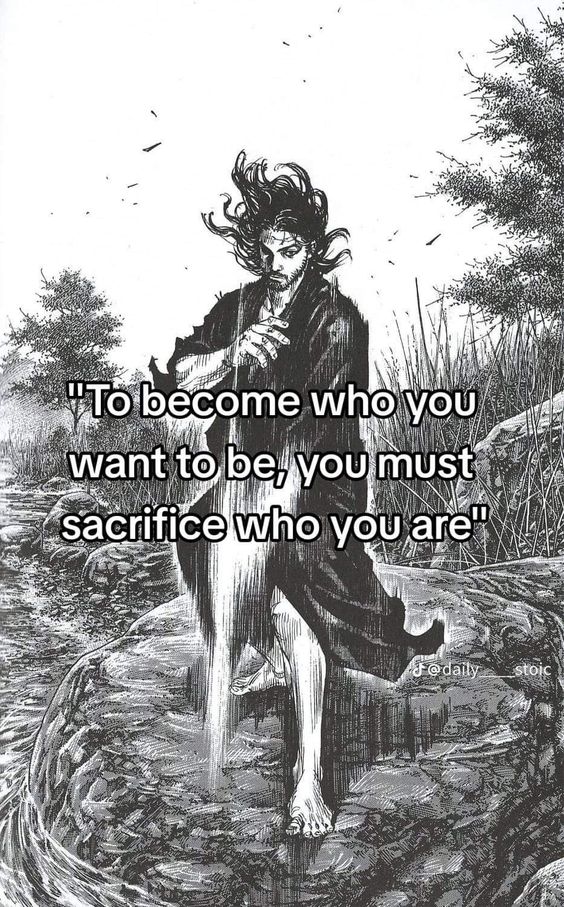“The commitments you make determine who you can become… and the commitments you honor define who you are.”
Seth Godin, Graceful (Page 9)
“Fall in love with some activity, and do it! Nobody ever figures out what life is all about, and it doesn’t matter. Explore the world. Nearly everything is really interesting if you go into it deeply enough. Work as hard and as much as you want to on the things you like to do the best. Don’t think about what you want to be, but what you want to do. Keep up some kind of a minimum with other things so that society doesn’t stop you from doing anything at all.”
Richard Feynman
“Human beings have always employed an enormous variety of clever devices for running away from themselves, and the modern world is particularly rich in such stratagems. We can keep ourselves so busy, fill our lives with so many diversions, stuff our heads with so much knowledge, involve ourselves with so many people and cover so much ground that we never have time to probe the fearful and wonderful world within. More often than not we don’t want to know ourselves, don’t want to depend on ourselves, don’t want to know ourselves, don’t want to depend on ourselves, don’t want to live with ourselves. By middle life most of us are accomplished fugitives from ourselves.”
John W. Gardner, Self-Renewal (Page 13)
“Imagine there is a small version of you and a big version. When you are playing small, your behavior is timid, you feel less than, and you are often surrounded by people and projects that drain you. When you are playing big, your behavior is confident, you feel motivated, and you tend to be investing in people and projects that energize you. How can you spend more time playing the big version of yourself this year?”
James Clear
“If you do not compare yourself with another you will be what you are. Through comparison you hope to evolve, to grow, to become more intelligent, more beautiful. But will you? The fact is what you are, and by comparing you are fragmenting the fact which is a waste of energy. To see what you actually are without any comparison gives you tremendous energy to look. When you can look at yourself without comparison you are beyond comparison, which does not mean that the mind is stagnant with contentment.”
J. Krishnamurti, Freedom From The Known (Page 64)
“In order to understand ourselves we need a great deal of humility. If you start by saying, ‘I know myself’, you have already stopped learning about yourself; or if you say, ‘There is nothing much to learn about myself because I am just a bundle of memories, ideas, experiences and traditions’, then you have also stopped learning about yourself. The moment you have achieved anything you cease to have that quality of innocence and humility; the moment you have a conclusion or start examining from knowledge, you are finished, for then you are translating every living thing in terms of the old. Whereas if you have no foothold, if there is no certainty, no achievement, there is freedom to look, to achieve. And when you look with freedom it is always new. A confident man is a dead human being.”
J. Krishnamurti, Freedom From The Known (Page 24)
“Where do we begin to understand ourselves? Here am I, and how am I to study myself, observe myself, see what is actually taking place inside myself? I can observe myself only in relationship because all life is relationship. It is no use sitting in a corner meditating about myself. I cannot exist by myself. I exist only in relationship to people, things and ideas, and in studying my relationship to outward things and people, as well as to inward things, I begin to understand myself.”
J. Krishnamurti, Freedom From The Known (Page 22)
“To understand ourselves needs no authority either of yesterday or of a thousand years because we are living things, always moving, flowing, never resting. When we look at ourselves with the dead authority of yesterday we will fail to understand the living movement and the beauty and quality of that movement.”
J. Krishnamurti, Freedom From The Known (Page 19)
“In trying to conform to [an] ideology, you suppress yourself—whereas what is actually true is not the ideology but what you are. If you try to study yourself according to another you will always remain a secondhand human being.”
J. Krishnamurti, Freedom From The Known (Page 17)
“It can be very difficult to have one’s own space. But unless you have your own space, you will never become acquainted with your own being. You will never come to know who you are. Always engaged, always occupied in a thousand and one things—in relationships, in worldly affairs, anxieties, plans, future, past—one continuously lives on the surface. If you love yourself deeply and go down into yourself, you will be ready to love others even more deeply, because one who does not know oneself cannot love very deeply.”
Osho, Everyday Osho (Page 153)
“As children we owned all of ourselves. As adults, in response to the expectations of others, we have had to hide much of ourselves away, out of sight even from our own eyes. The cost of such voluntary losses is great. No one can afford to give up any part of himself. All of you is worth something. Even the evil can be a source of vitality if only you can face it and transform it.”
Sheldon B. Kopp, If You Meet Buddha On The Road, Kill Him! (Page 141)
“Patients learn in the course of telling their tales that they can discover themselves by becoming curious about the other struggling human beings with whom they live in the world. The only times that we can have what we long for are those moments when we stop grasping for it. At such times, all things are possible: ‘to a mind that is ‘still’ the whole universe surrenders.'”
Sheldon B. Kopp, If You Meet Buddha On The Road, Kill Him! (Page 65)
“Each man has his Enkidu, his other half, his hidden self. The more he is out of touch with his double the more a man’s life is an empty and unsatisfying burlesque. When such a man comes to me as a pilgrim/patient, then like the goddess, Aruru, I try to introduce him to his double, so that they may come to embrace one another. For one strong man who lives like a brute, there is the double of his own soft helplessness to be met. Without his weak and passive double, his capacity for tenderness and gentle touch is also lost. For another sort of half-man who meets the world as Mr. Nice Guy, there is the danger of living a life of self-degrading appeasement. In order to become free to assert himself when he needs to, he must first be introduced to the ruthlessly dangerous double of his undiscovered rage.”
Sheldon B. Kopp, If You Meet Buddha On The Road, Kill Him! (Page 32)
